4 Benefits of Pickle Juice for Runners: When to Consume it?
Author:
Unlock your full potential by engaging with our experts and community! Have questions about your fitness journey or looking for expert advice on weightlifting techniques? Don’t hesitate — leave a comment below and Oleksandr Zagrebelnyi will provide a personalized answer and insights to help you reach your goals.
Torokhtiy is reader-supported. Some links are affiliate links, and we may earn a commission at no extra cost to you. See our disclosure page for details.
Are you an avid runner looking for relief from pesky cramps? Pickle juice for runners is surprisingly effective in tackling muscle cramps and improving performance.
This blog post will explain 4 ways pickle juice benefits runners, as well as the nutritional value of pickles and other alternatives to consider.
Let’s explore how pickle juice can help make running smoother while providing great health benefits!
Why do athletes drink pickle juice? – Pickle juice is an effective and natural remedy for muscle cramps, dehydration, and fatigue. It contains electrolytes that help hydrate muscles during physical activity, as well as antioxidants that protect against cellular damage. It also helps to reduce muscle tension, enabling a quicker recovery.
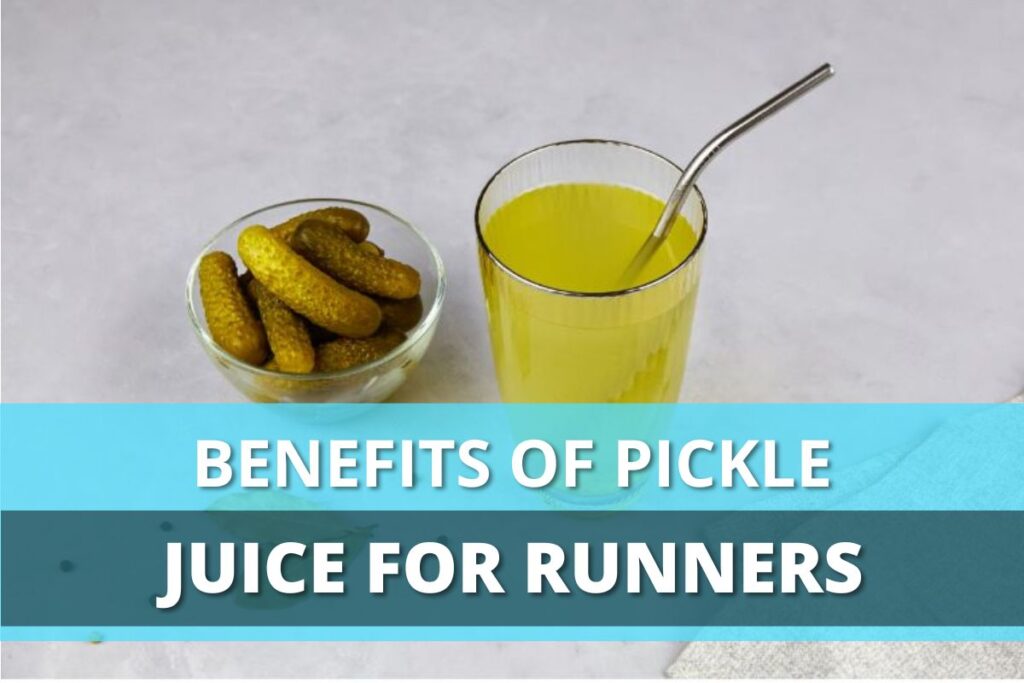
What is Pickle Juice, and its benefits for Runners?
Pickle juice is a salty brine made from cucumbers, water, and vinegar. It’s typically used for making pickles but has recently gained popularity as an effective recovery tool for runners.
But, are pickles good for runners? Here are the main benefits of pickle juice for your performance:
1. Hydrates and Relieves Muscular Cramps
Pickle juice is an excellent source of electrolytes, including sodium and potassium. When runners sweat during exercise, these minerals are lost, which can cause dehydration. By drinking pickle juice, which is rich in electrolytes before or after a workout, athletes can replenish their fluid stores and maintain optimal hydration levels while experiencing cramp relief at the same time.
Experts say that drinking pickle juice helps reduce muscle cramps compared to conventional sports drinks. It may even shorten the duration of a muscle spasm once it has already started. The vinegar content also has properties that can further relieve muscular discomfort and reduce soreness after running sessions.
2. Acts as a Fat-Free Recovery Aid
Pickle juice is an effective fat-free recovery aid for runners. Its content helps replenish the vital minerals and nutrients lost during exercise.
Pickles are naturally calorie-free and contain no fats, proteins, carbohydrates, or sugar. However, they provide some key elements necessary for athletic performance such as hydration, muscle recovery, and improved electrolyte balance.
Thanks to these essential components efficiently working together post-run, pickle juice helps runners boost their energy levels, making them more capable to push through intense workouts.
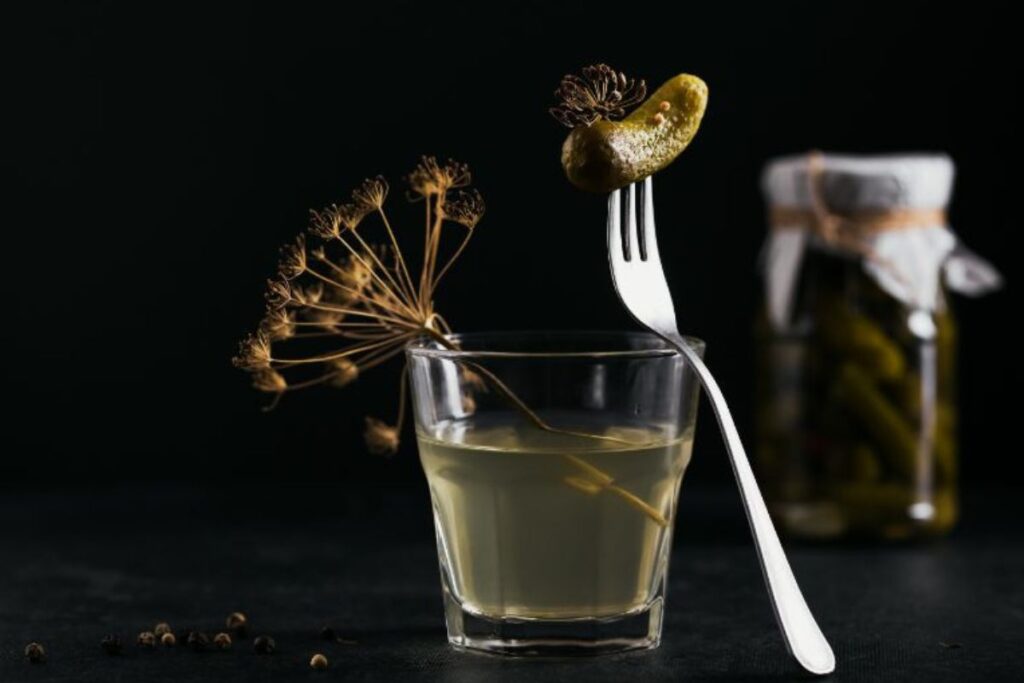
3. Rich in Antioxidants
Pickled cucumbers contain vitamin C, which helps support healthy joints and bones by reducing inflammation. Additionally, studies suggest consuming antioxidant-rich foods leads to better performance during physical exertion.
It may also promote digestive health thanks to beneficial bacteria naturally found in pickles. It supports gut flora balance and improves nutrient absorption from other consumed foods.
4. Helps Control Blood Sugar Levels
Pickled cucumber juice can help to control blood glucose levels due to the presence of acetic acid, which is found in pickles as well as vinegar.
This natural process helps balance sugar and insulin activity in your body, resulting in improved blood sugar management during runs. The antioxidants present in pickle juice also play an important role by helping to moderate the spike in blood sugar levels experienced after intense exercise or at times when energy levels are low from running long distances.
Nutritional Value of Pickled Cucumber Juice
The key ingredient in pickled cucumber juice is sodium, which helps regulate fluid levels in the body. Sodium also helps to transport glucose to muscle cells, providing energy during exercise.
Other nutrients present in pickle juice include:
- Potassium, a mineral essential for promoting heart health;
- Calcium and magnesium, which help to support strong bones;
- Vitamin C, acting as an antioxidant;
- Acetic acid (vinegar), helpful for blood sugar control;
- Zinc, crucial for immune system function;
- Iron, key to fight off fatigue during workouts;
- Folate and B vitamins, necessary for healthy tissue development.
Pickled cucumber juice contains 2–25 calories, 0-0.1 g of fat, 0–0.1 g of protein, and 0–5.2 g of carbs per 1 fl oz, depending on the brand. Additionally, the pickle juice pH ranges from 3 to 4.
Pickle Juice for Runners’ Cramps: Does It Really Help?
Pickle juice has been known to provide relief from muscle cramps and improve athletic performance, but does it really work? Why does pickle juice help with cramps?
Many athletes are hesitant to try pickle juice at first, but those who do swear by its ability to quickly alleviate muscle cramps.
In fact, there is no research that confirms the magical benefits of pickle juice. Before feeling disappointed, let’s go deeper and explore all the details.
Is Pickle Juice Good for Runners?
Muscle cramps in runners are often caused by fluid loss during sweating. In addition to water, your body loses important electrolytes needed for healthy muscle fiber function.
This mainly applies more to the loss of sodium and potassium to a greater extent. Therefore, it is essential for runners to maintain a balance of sodium and potassium, especially during long runs when your body loses a lot of fluid.
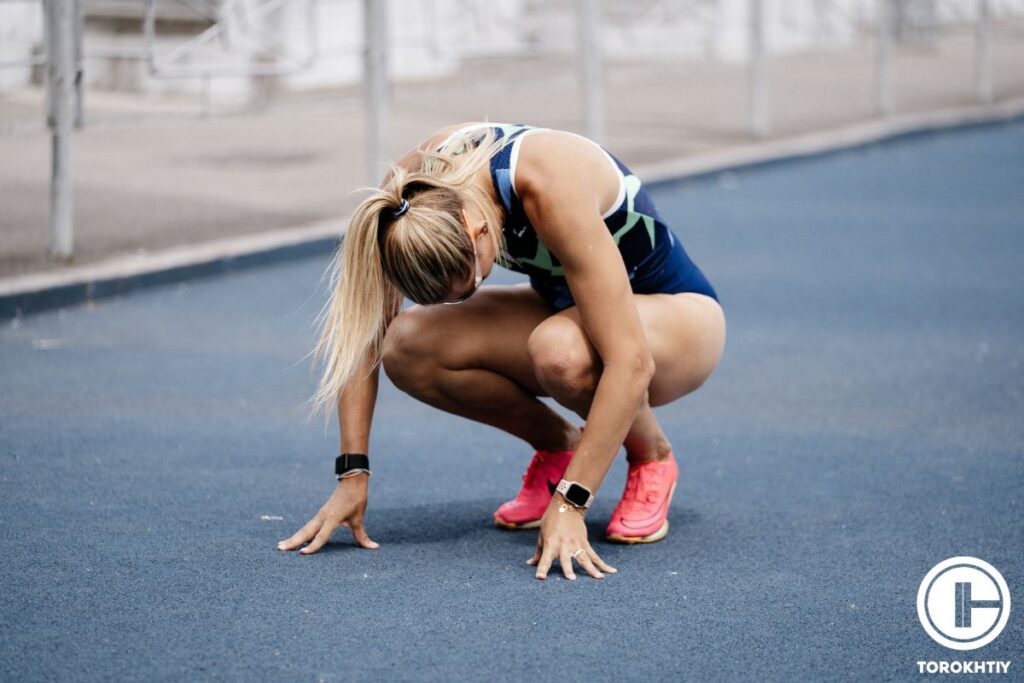
Returning to the issue of pickled juice, it just contains the sodium and potassium that your muscles need so much. Of course, this is not the only source of electrolytes, but it has a pleasant taste, natural composition, and does not contain fats and carbohydrates.
There are many studies on the effect of pickle juice on runners, and some prove that it is beneficial for shortening muscle cramps. Therefore, it is widely popular amongst long-distance runners, who rely on it to replenish fluid levels and prevent painful muscle fatigue during their runs.
When is the Best Time to Drink Pickle Juice?
Knowing when to drink pickle juice is essential for runners to take advantage of its physiological benefits, and make sure they’re running their absolute best. Here are two options to consider:
1. Pickle Juice Before Running
Before running, athletes may consider drinking pickle juice due to its potential in reducing cramps and enhancing performance. However, taking pickle juice before running has both advantages and disadvantages.
Positives:
Could be better:
2. Pickle Juice After Running
After a hard workout, many runners turn to pickle juice as a natural recovery aid and cramp reliever. It is important for runners to weigh the potential benefits of drinking pickle juice against any risks or side effects before doing so.
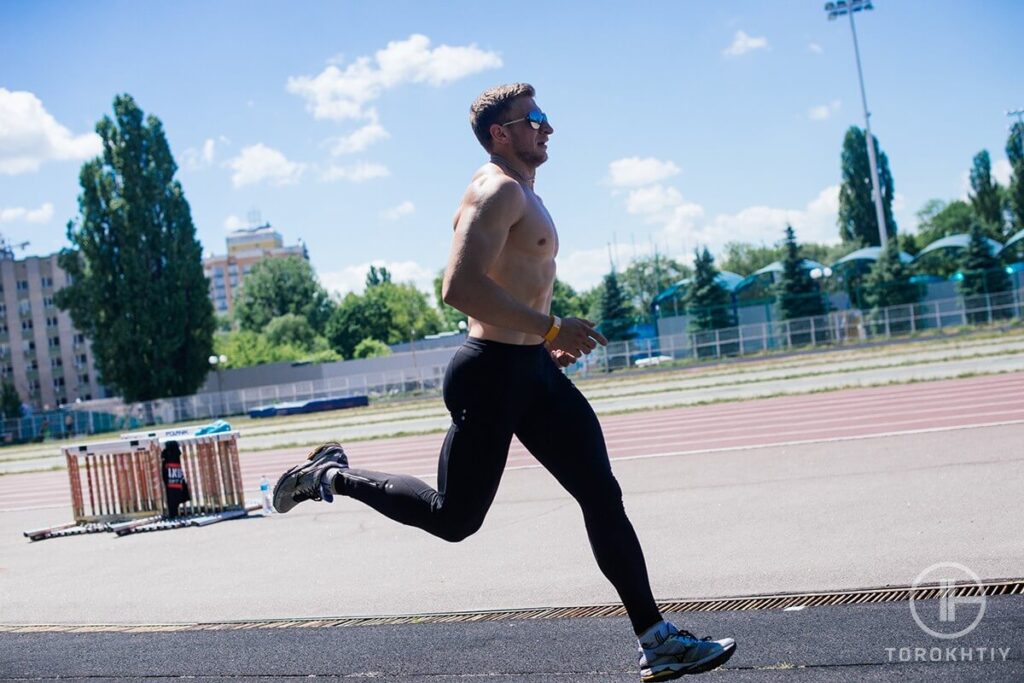
Consuming moderate amounts of pickle juice (4–8 fl oz or about 118–237 ml) can be beneficial after workouts.
It helps with:
- hydration;
- restoring post-run balance;
- fueling up on vitamins like B6, which helps reduce fatigue after activity.
The side effects of overdrinking pickle juice may include:
- stomach issues;
- high blood pressure (due to high salt content), and electrolyte imbalances.
How Should Runners Take Pickle Juice: The Exact Quantity and Form
Drinking pickle juice directly is the usual method of consumption for runners. This can be done either before or after a workout, depending on the desired effect.
Finding the right quantity of pickle juice that works for each individual runner is key. Consuming too much could result in unfavorable taste sensations and side effects, while drinking too little won’t yield the maximum benefits this unique liquid remedy can offer.
Tips From the Champ
Generally speaking, consuming 4 ounces to 8 ounces at once should provide relief if you are prone to muscle cramps due to exercise activities like running. If you prefer to take pickle juice before your workout, drinking it 15 minutes beforehand should allow enough time for the helpful compounds to take effect.
Running Coach Nike Run Club Kyiv
4 Alternatives to Pickle Juice for Runners’ Cramps
Here are some alternative options to pickle juice for relieving cramps:
1. Coconut Water
Coconut water is considered to be an effective and beneficial alternative to pickle juice in helping athletes with relief from muscle cramps. It contains the same electrolytes found in pickle juice, such as sodium, calcium, and other nutrients, which play a crucial role in our internal hydration system.
2. Watermelon Water
This natural remedy contains electrolytes, including potassium, which help prevent dehydration and boost energy during exercise or even after a hard workout. Additionally, research shows that its antioxidant capacity can reduce inflammation, resulting in faster recovery times.
Watermelon water offers all the benefits of other sports drinks but without added sugar or additives, making it an ideal choice for maintaining fitness goals while avoiding unnecessary calories!
3. Apple Cider Vinegar
Similar in nature to pickle juice, apple cider vinegar may be able to provide short yet powerful relief from dreaded leg cramps. Moreover, drinking it before running could potentially help athletes prevent them all together due to its acetic acid content. Consuming small amounts of diluted ACV on its own or with other remedies works well as a cramp reliever during exercise.
4. Electrolyte Water
Electrolyte water is a great alternative to pickle juice for runners’ cramps. It can help increase hydration levels, improve muscle performance, and even replenish essential minerals lost during exercise.
It contains electrolytes such as sodium, potassium, and chloride, which are vital for proper muscle functionality and efficient nerve conduction.
Hoka Bondi 8
- Material: Breathable and supportive mesh upper
- Sole Material: Full-length EVA midsole for maximum cushioning
- Outsole (tread feature): Durable rubber outsole with a unique lug pattern
- Drop: 4mm
- Season: Suitable for all seasons
- Special Features: Exceptional cushioning and comfort
- Size: Available in various sizes
- Type: Maximum cushioning running shoe
If you want excellent running or walking shoes or just footwear you’ll be comfortable in, you can’t go wrong with the Hoka Bondi 8.
It’s been upgraded and now they have lighter, softer materials and a new extended heel design. The heel design gives a super soft, balanced feeling from th emoment your heel hits the ground to when you push off with your toes.
As far as the weight goes, it’s around 10.80 ounces, and the heel drop is 4 mm. They’re not too heavy and the lower drop is a good balance between cushioning and feeling connected to the ground.
The Bondi 8 is focused on cushioning and keeps things simple. There’s a good amount of support without any extra stuff that you don’t really need and that would only jack up the price. Take the rear crash pad, for example – it makes for a soft, smooth ride, which is perfect if you like to run outdoors.
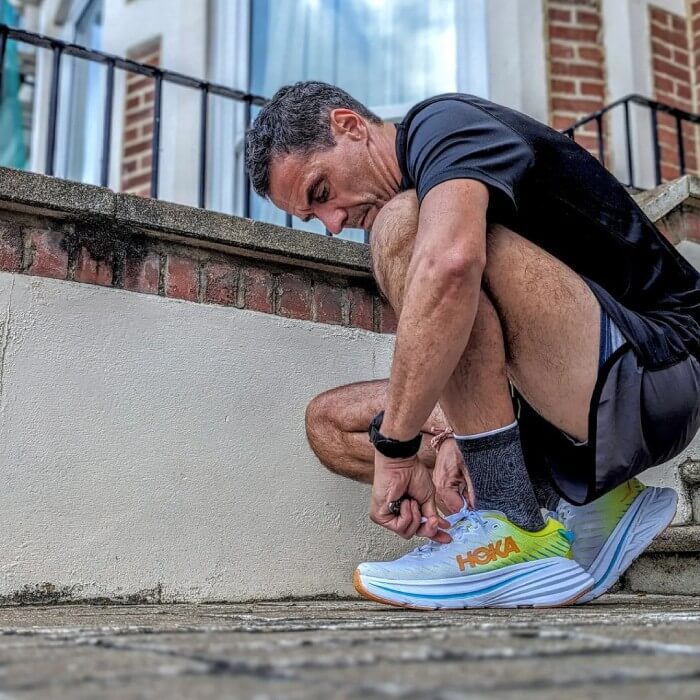
The upper part is made of engineered mesh, which is breathable and keeps your feet cool and dry. The tongue and collar have memory foam and mold to your foot shape. All of these features make the fit snug but flexible, which is exactly what you would want.
The Bondi 8 is eco-friendly because it uses recyclable materials in parts like the mesh and the sockliner. Plus, the shoes are completely vegan, which (if that’s important to you) is nice!
Frequently Asked Questions about Pickle Juice for Running
Why Do Long-Distance Runners Drink Pickle Juice?
Pickle juice can provide rapid relief from muscle cramps and improve hydration by supplying essential electrolytes. It can ease cramps within minutes of ingestion, which could explain why so many athletes use it as a remedy.
Does Pickle Juice Help with Running?
Yes, pickle juice can help your running by replenishing electrolytes, hydrating, and reducing muscle fatigue. It may help reduce or relieve those pesky post-workout muscle cramps often experienced by runners.Pickle juice, which has vinegar as its main ingredient, relieves a cramp 45 percent faster.
Final Thoughts on Pickle Juice for Runners
Pickle juice has been found to aid runners in a variety of ways. Its high electrolyte content and acetic acid can help in cramp relief and hydration, particularly for athletes who may be running long distances or engaging in strenuous exercise.
It’s available in shots or large bottles, so every runner can pick the best option for their pre-run hydration or post-run recovery. Improve your healthy nutrition with pickle juice and feel the difference yourself!
Have you ever tried to replenish your electrolytes with pickle juice? Please tell us about your experience in the comments below.
References:
- “Pickle Juice: Is It Good for You?” https://www.webmd.com/diet/pickle-juice-good-for-you, (accessed September 11, 2023).
- “Does pickle juice relieve muscle cramps?” The Cooper Institute, https://www.cooperinstitute.org/blog/does-pickle-juice-relieve-muscle-cramps
- Miller KC, et al., “Reflex inhibition of electrically induced muscle cramps in hypohydrated humans”, Med Sci Sports Exerc 42, no. 5 (2010): 953-61, http://www.dcscience.net/Miller_Pickle_juice_cramps_reflex_2010.pdf
- Tarazona-Díaz MP, et al., “Watermelon juice: potential functional drink for sore muscle relief in athletes”, J Agric Food Chem 61, no. 31 (2013): 7522-8, https://core.ac.uk/reader/159419540
- Hooper Marosek SE, et al., “Quantitative Analysis of the Acetic Acid Content in Substances Used by Athletes for the Possible Prevention and Alleviation of Exercise-Associated Muscle Cramps”, J Strength Cond Res 34, no. 6 (2020): 1539-1546, https://journals.lww.com/nsca-jscr/fulltext/2020/06000/quantitative_analysis_of_the_acetic_acid_content.7.aspx
- Yong JW, et al., “The chemical composition and biological properties of coconut (Cocos nucifera L.) water”, Molecules 14, no. 12 (2009): 5144-64, https://www.mdpi.com/1420-3049/14/12/5144
- Photos by Torokhtiy Media Team; Viktoriya Telminova, Canva.com; Svittlana, Canva.com.
Why Trust Us?
With over 20 years in Olympic weightlifting, strength training, nutrition coaching, and general fitness our team does its best to provide the audience with ultimate support and meet the needs and requirements of advanced athletes and professional lifters, as well as people who strive to open new opportunities and develop their physical capabilities with us.
By trusting the recommendations of our certified experts in coaching, nutrition, and sports training programming, as well as scientific consultants, and physiotherapists, we provide you with thorough, well-considered, and scientifically proven content. All the information given in the articles concerning workout programming, separate exercises, and athletic performance, in general, is based on verified data.
The product testing process is described in more detail here.
Oleksandr is a running coach and member of the Nike Run Club coaching team for 8 years. A participant in national and international competitions at distances from one kilometer to the ultra trail. Owner of mountain trail running camps. Nowadays Oleksandr is responsible for creating running training programs for athletes of various levels, coaching personally offline and online, conducts trail running camps in the mountains, participates in competitions.



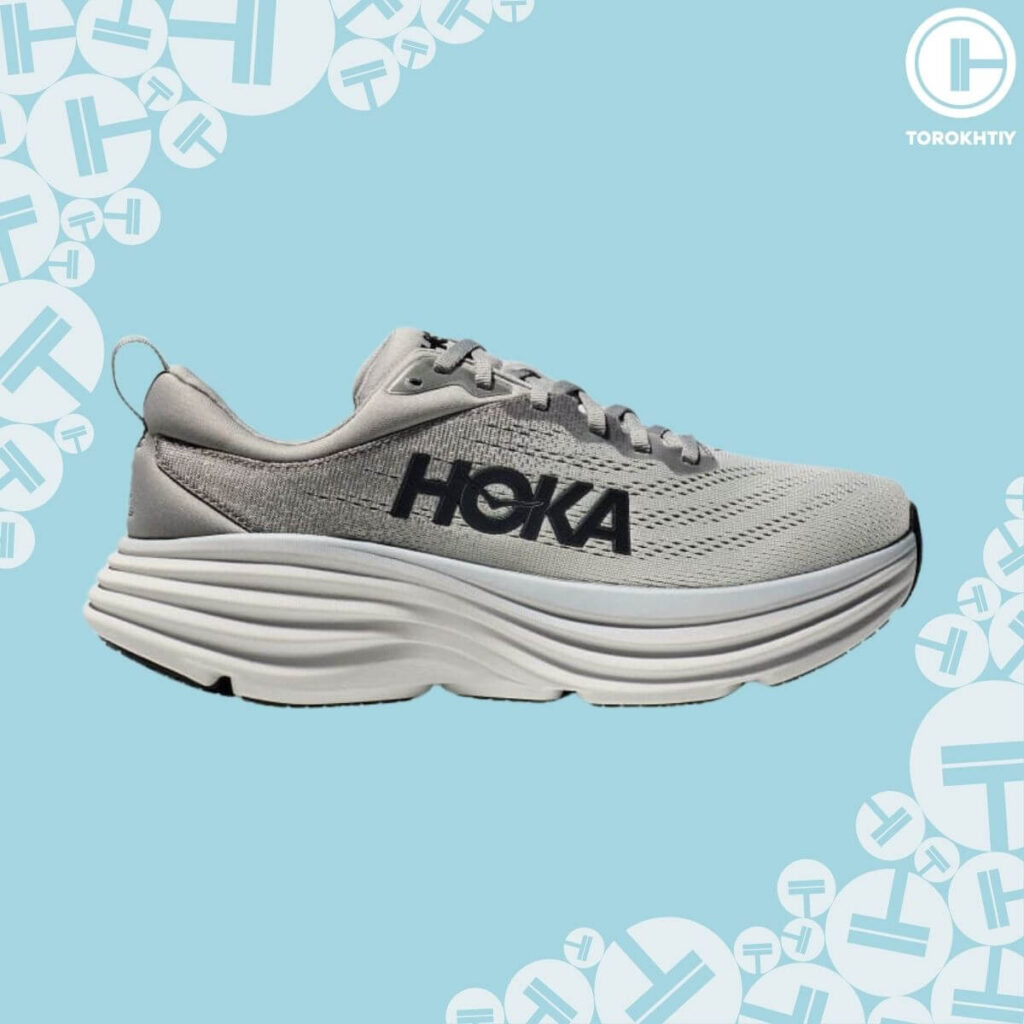
Still have questions after reading our article? Unlock your full potential by engaging with our experts and community! Don’t hesitate — leave a comment below and Oleksandr Zagrebelnyi will provide a personalized answer and insights to help you reach your goals.